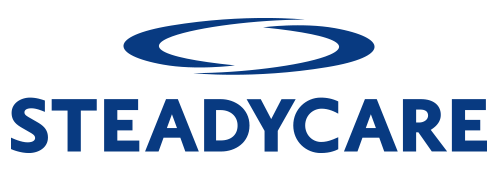Caregiving is often a challenging and demanding field, but few roles can be as emotionally and mentally taxing as that of the awake overnight staff in homes with forensically involved individuals. These professionals are the unsung heroes who work tirelessly to ensure the safety and well-being of residents with intellectual and developmental disabilities who have had contact with the criminal justice system. We will explore the critical role these caregivers play and shed light on the unique challenges they face.
The Role of Awake Overnight Staff
Awake overnight staff are a crucial component of group homes that house forensically involved individuals. Unlike day-shift staff who are present when most activities occur, overnight staff work during the quiet, dark hours, providing essential support to residents. Their responsibilities include:
Security and Safety: One of the primary duties of awake overnight staff is to maintain the security and safety of the residents. They monitor the premises, ensuring that residents remain safe within the home.
Crisis Management: Forensically involved individuals may exhibit challenging behaviors or experience emotional distress during the night. Awake overnight staff are trained to de-escalate crises and manage challenging situations without compromising the safety of the residents or themselves.
Medication Administration: Some residents may require medications at specific times during the night. Awake overnight staff ensure that medication protocols are followed, promoting the health and stability of residents.
Supervision: These caregivers provide supervision, especially for those residents who may be at risk of self-harm, elopement, or other safety concerns. Their watchful presence can prevent accidents and incidents.
Challenges Faced by Awake Overnight Staff
Working overnight with forensically involved individuals presents unique challenges:
Isolation: Overnight shifts can be isolating. The absence of daytime activities and social interactions can lead to feelings of loneliness and isolation among staff.
Vigilance: Staying alert and vigilant throughout the night can be mentally exhausting. The need to respond swiftly to any emergencies or disturbances can take a toll on staff’s mental and emotional well-being.
Trauma Exposure: Awake overnight staff often bear witness to residents’ trauma histories, which can be emotionally distressing. They must provide care and support while managing their reactions to these traumatic experiences.
Irregular Sleep Patterns: Working overnight disrupts the body’s natural circadian rhythms, making it challenging to maintain regular sleep patterns. This can lead to sleep disturbances and fatigue over time.
Support and Recognition
To address these challenges and support the invaluable work of awake overnight staff, several measures can be taken:
Training and Education: Providing comprehensive training on trauma-informed care, crisis intervention, and self-care can better equip staff to handle the unique needs of residents.
Mental Health Support: Offering access to counseling and mental health resources can help staff cope with the emotional toll of their work.
Regular Shift Rotation: Implementing shift rotation schedules can help prevent burnout associated with consistently working overnight.
Recognition and Appreciation: Acknowledging and appreciating the efforts of awake overnight staff is crucial. Their dedication and commitment to the safety and well-being of residents should not go unnoticed. Utilizing a platform like SteadyCare Check-In Plus can help you discover and call out your all star staff.
Awake overnight staff in homes with forensically involved individuals play an essential role in ensuring the security and well-being of residents. Their work is demanding, emotionally taxing, and often goes unrecognized. By offering adequate training, support, and appreciation, we can empower these unsung heroes to continue their invaluable service, promoting the dignity and quality of life for those they care for. It is imperative that we recognize the importance of their work and strive to provide the resources and support necessary for them to succeed in their challenging role.
